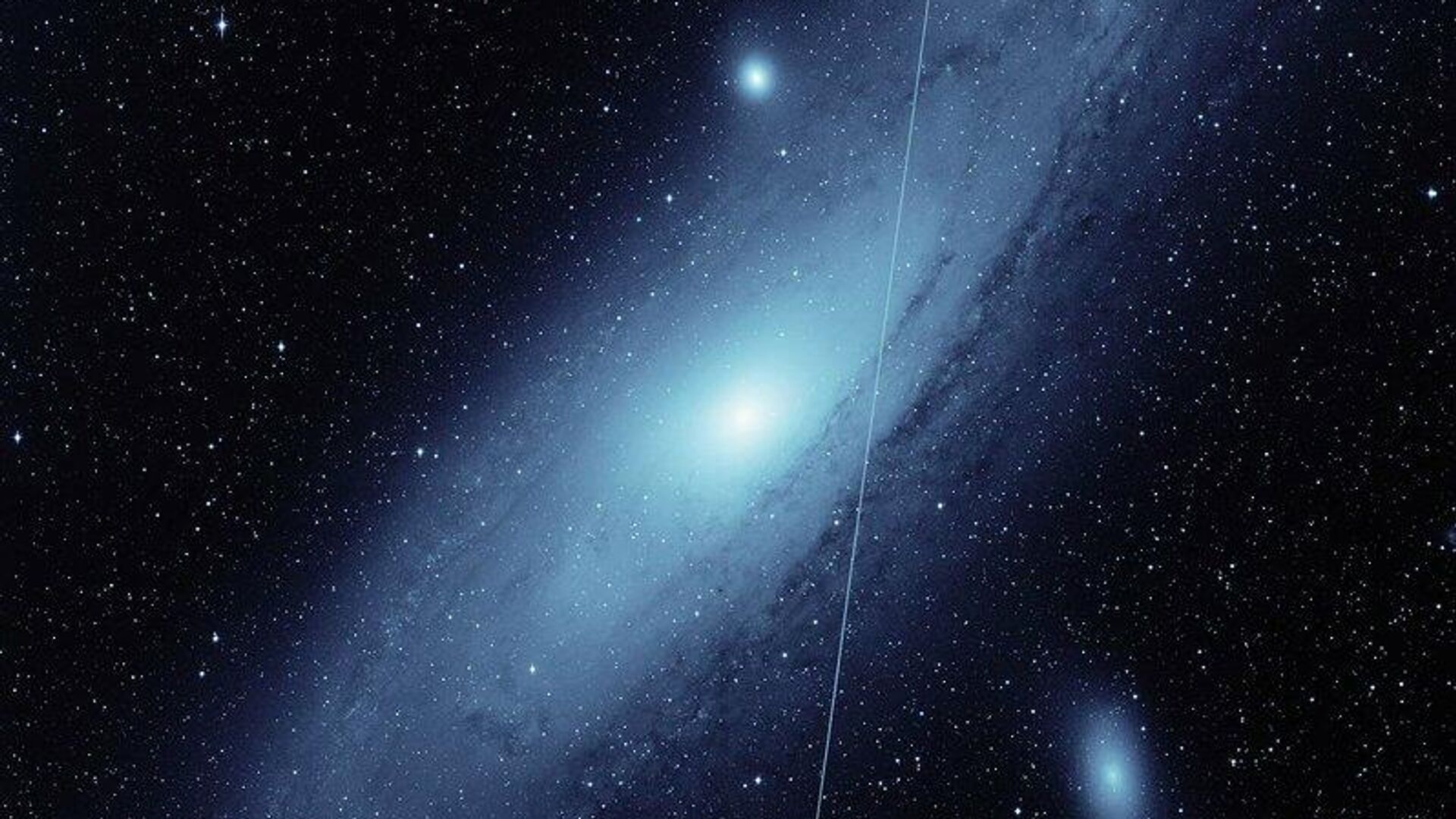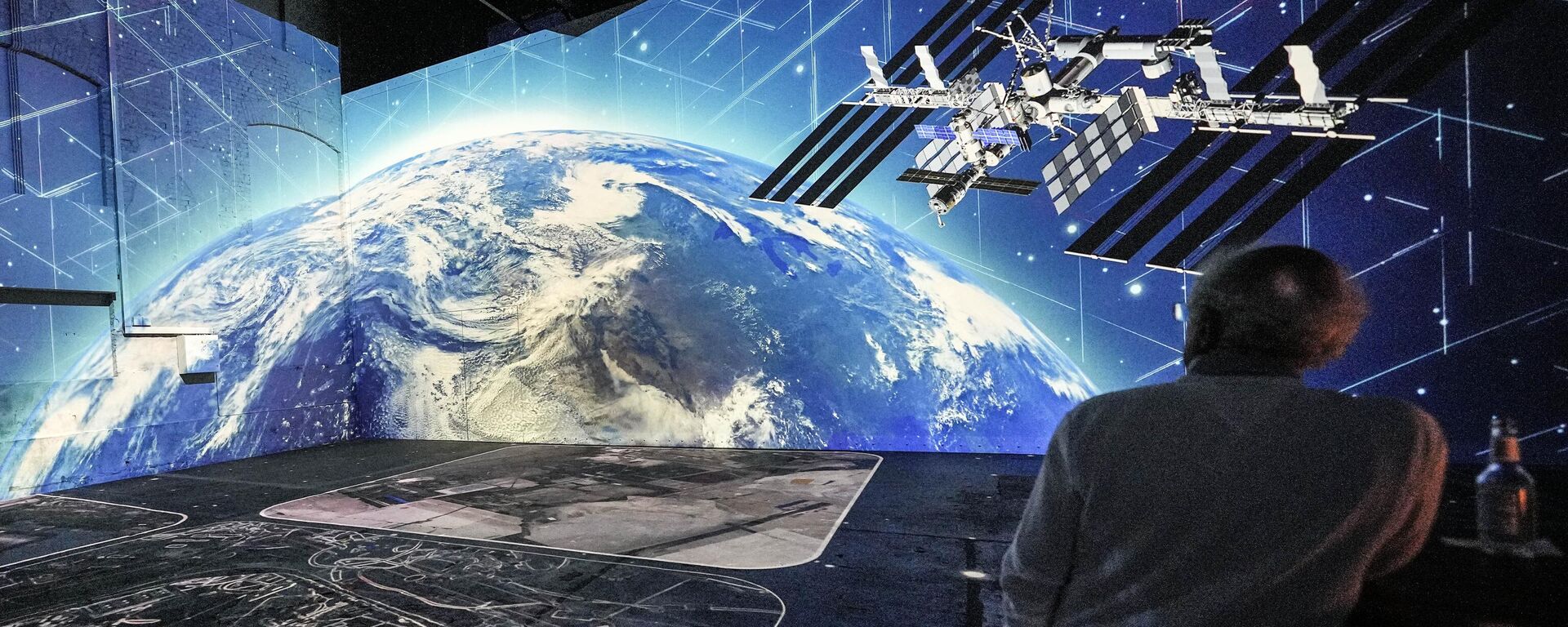https://en.sputniknews.africa/20231026/russian-space-corporation-invites-africa-to-take-step-towards-localizing-satellite-technologies-1063093177.html
Russian Space Corporation Invites Africa to Take Step Towards Localizing Satellite Technologies
Russian Space Corporation Invites Africa to Take Step Towards Localizing Satellite Technologies
Sputnik Africa
In October, the Russian space corporation Roscosmos began working on a project called Grifon (lit. Griffon or Gryphon). It's a small constellation of... 26.10.2023, Sputnik Africa
2023-10-26T14:29+0200
2023-10-26T14:29+0200
2023-10-26T14:30+0200
earth
space
moscow
roscosmos
satellites
development
north africa
central africa
east africa
west africa
https://cdn1.img.sputniknews.africa/img/07e7/0a/1a/1063097646_0:134:798:583_1920x0_80_0_0_31febcf0d33ae84ec4e23138916cc28b.jpg
The Russian space corporation Roscosmos has invited African countries to participate in the Grifon multi-satellite Earth monitoring project. This would allow African countries to create the basis for the localization of satellite technologies, Roscosmos CEO Yuri Borisov said on Wednesday.Grifon is a project aimed at the creation of a global Earth monitoring system. It is designed to receive data from the Russian territory every 30 hours and at least 38 hours from other places in the world. In addition, the satellites will analyze data to detect changes in natural phenomena and processes caused by human actibity, as well as regulate traffic flows and monitor mining operations.According to Borisov, the Grifon Earth monitoring system, currently being developed in Russia, will consist of 136 spacecraft based on 16-unit platforms (one unit, a "cube" measuring 10 x 10 x 10 centimeters, is the basic element in the creation of nanosatellites).The general director of Roscosmos added that the creation of ground-based space infrastructure for remote probing of the Earth could become the starting point for solving the space program of any African state.On July 27-28, during the second Russia-Africa Summit and Economic and Humanitarian Forum, Russia's Roscosmos announced plans to strengthen its space partnership with African countries and to conduct joint research and build cooperation in space development, technology and space exploration.
https://en.sputniknews.africa/20231003/roscosmos-invites-brazil-turkey--south-africa-to-participate-in-russian-orbital-station-project-1062518664.html
earth
space
moscow
north africa
central africa
east africa
west africa
southern africa
Sputnik Africa
feedback@sputniknews.com
+74956456601
MIA „Rossiya Segodnya“
2023
Samantha Arias
https://cdn1.img.sputniknews.africa/img/07e7/0a/18/1063050346_115:0:834:719_100x100_80_0_0_1682778780537fd5aa8dd2536a012c1b.jpg
Samantha Arias
https://cdn1.img.sputniknews.africa/img/07e7/0a/18/1063050346_115:0:834:719_100x100_80_0_0_1682778780537fd5aa8dd2536a012c1b.jpg
News
en_EN
Sputnik Africa
feedback@sputniknews.com
+74956456601
MIA „Rossiya Segodnya“
Sputnik Africa
feedback@sputniknews.com
+74956456601
MIA „Rossiya Segodnya“
Samantha Arias
https://cdn1.img.sputniknews.africa/img/07e7/0a/18/1063050346_115:0:834:719_100x100_80_0_0_1682778780537fd5aa8dd2536a012c1b.jpg
earth, space, moscow, roscosmos, satellites, development, north africa, central africa, east africa, west africa, southern africa, international
earth, space, moscow, roscosmos, satellites, development, north africa, central africa, east africa, west africa, southern africa, international
Russian Space Corporation Invites Africa to Take Step Towards Localizing Satellite Technologies
14:29 26.10.2023 (Updated: 14:30 26.10.2023) Samantha Arias
Producer / Podcast host
In October, the Russian space corporation Roscosmos began working on a project called Grifon (lit. Griffon or Gryphon). It's a small constellation of satellites designed to monitor the planet's surface.
The Russian space corporation Roscosmos has invited African countries to participate in the Grifon multi-satellite Earth monitoring project. This would allow African countries to create the basis for the localization of satellite technologies, Roscosmos CEO Yuri Borisov said on Wednesday.
"Participation in such a project would allow the African region to quickly prepare the necessary personnel and lay the foundation for the subsequent localization of the necessary technologies," Borisov said at a conference at the Moscow State Institute of International Relations (MIGMO).
Grifon is a project aimed at the creation of a global Earth monitoring system. It is designed to receive data from the
Russian territory every 30 hours and at least 38 hours from other places in the world. In addition, the satellites will analyze data to detect changes in natural phenomena and processes caused by human actibity, as well as regulate traffic flows and monitor mining operations.
According to Borisov, the Grifon Earth monitoring system, currently being developed in Russia, will consist of 136 spacecraft based on 16-unit platforms (one unit, a "cube" measuring 10 x 10 x 10 centimeters, is the basic element in the creation of nanosatellites).
The general director of Roscosmos added that the creation of ground-based space infrastructure for remote probing of the Earth could become the starting point for solving the space program of any
African state.
"Because it includes such areas of current interest as cartography, monitoring of water, fish, forest and agricultural resources, monitoring of wildfires, as well as environmental protection," he explained.
On July 27-28, during the second Russia-Africa
Summit and Economic and Humanitarian Forum, Russia's Roscosmos announced plans to strengthen its space partnership with African countries and to conduct joint research and build cooperation in space development, technology and space exploration.



